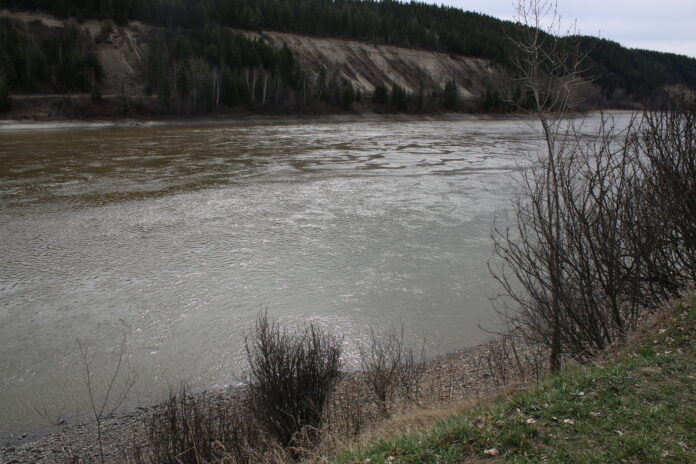BC’s snowpack remained historically low in April.
The BC River Forecast Centre released it’s April snow bulletin today (Wednesday), which showed on April 1st, the average of all snow measurements across the province was 63 per cent of normal.
On March 1st of this year, it was 66 per cent of normal, and on April 1st in 2023, it was 88 per cent of normal.
“The 63 per cent of normal for the province on April 1st is the lowest since 1970,” Boyd said.
Boyd noted 28 snow sites measured record low snow water equivalent on April 1st.
“The April 1st snow bulletin is considered the premiere bulletin for assessing the year’s seasonal snowpack and for comparing historical years,” said BC River Forecast Hydrologist Jonathan Boyd.
“Typically by April 1st, about 95 per cent of the seasonal snow has accumulated, with the peak occurring mid-month.”
Boyd added this past winter, the snow accumulation followed the expected El Nino conditions, with low snowpack measured across the province.
For the most part, the numbers are even lower in the Central Interior and the Cariboo.
In the Prince George area, the Upper Fraser West is around 70 per cent of normal, while the Upper Fraser East is at around 56 per cent of normal.
“Really the risk for flooding for Prince George, for flooding is about as low as it’s ever been with these numbers, and of course that really leads to the potential for water supply challenges,” Boyd explained.
In the Cariboo, the Quesnel basin is at 52 per cent of Normal.
“Three our of four sites measured their record low, with the other station measuring its second lowest, so the snowpack is extremely low in the Cariboo,” Boyd said.
While the map shows the Chilcotin as zero per cent of normal, Boyd noted there are only two lower-elevation manual snow surveys within it’s boundaries.
“It’s common for these stations to be snow free on April 1st, if it’s a warm March,” he explained.
“A better indicator of the seasonal snowpack for the Chilcotin is actually the March 1st snow basin index, which was 67 per cent of normal.”
The Nechako area measured 62 per cent of normal, while the Skeena-Nass region measured 59 per cent of normal.
“We know this is concerning news,” said Minister of Water, Land and Resource Stewardship Nathan Cullen.
“Communities around BC experienced serious drought conditions last summer. It fuelled the worst wildfire season ever, harmed fish and wildlife, and affected farmers, ranchers, First Nations and industry.”
Cullen said the BC Government will continue to monitor streamflows and groundwater levels in the weeks and months ahead, and will take extra steps as necessary.
Something going on in the Prince George area you think people should know about?
Send us a news tip by emailing [email protected].






